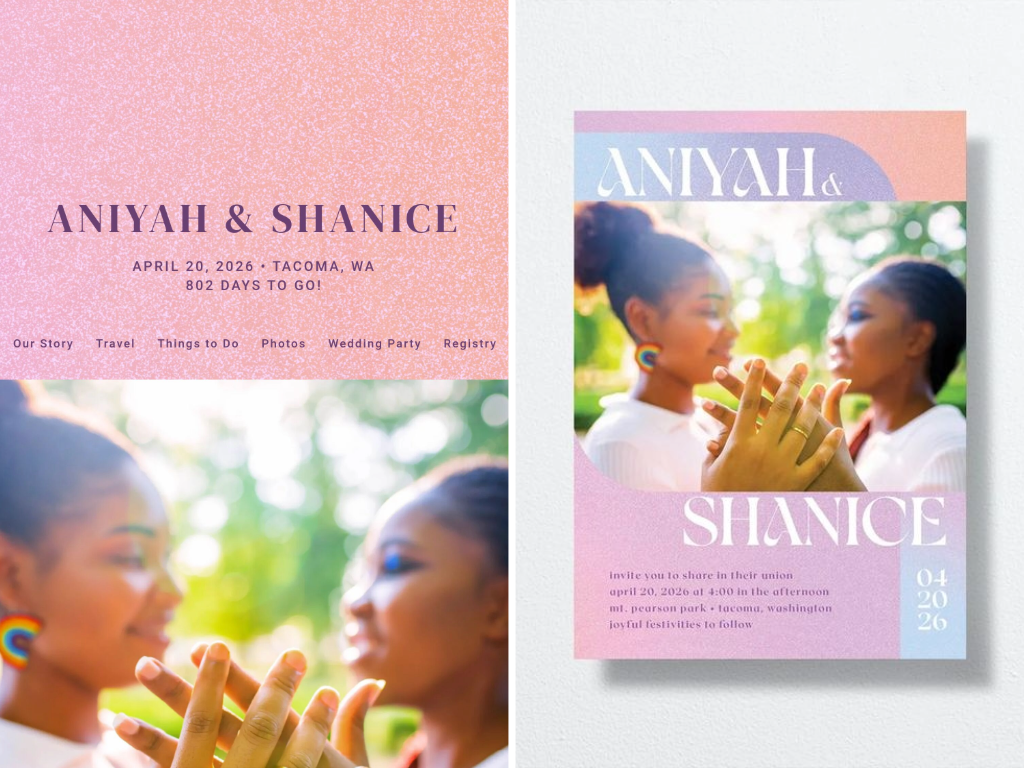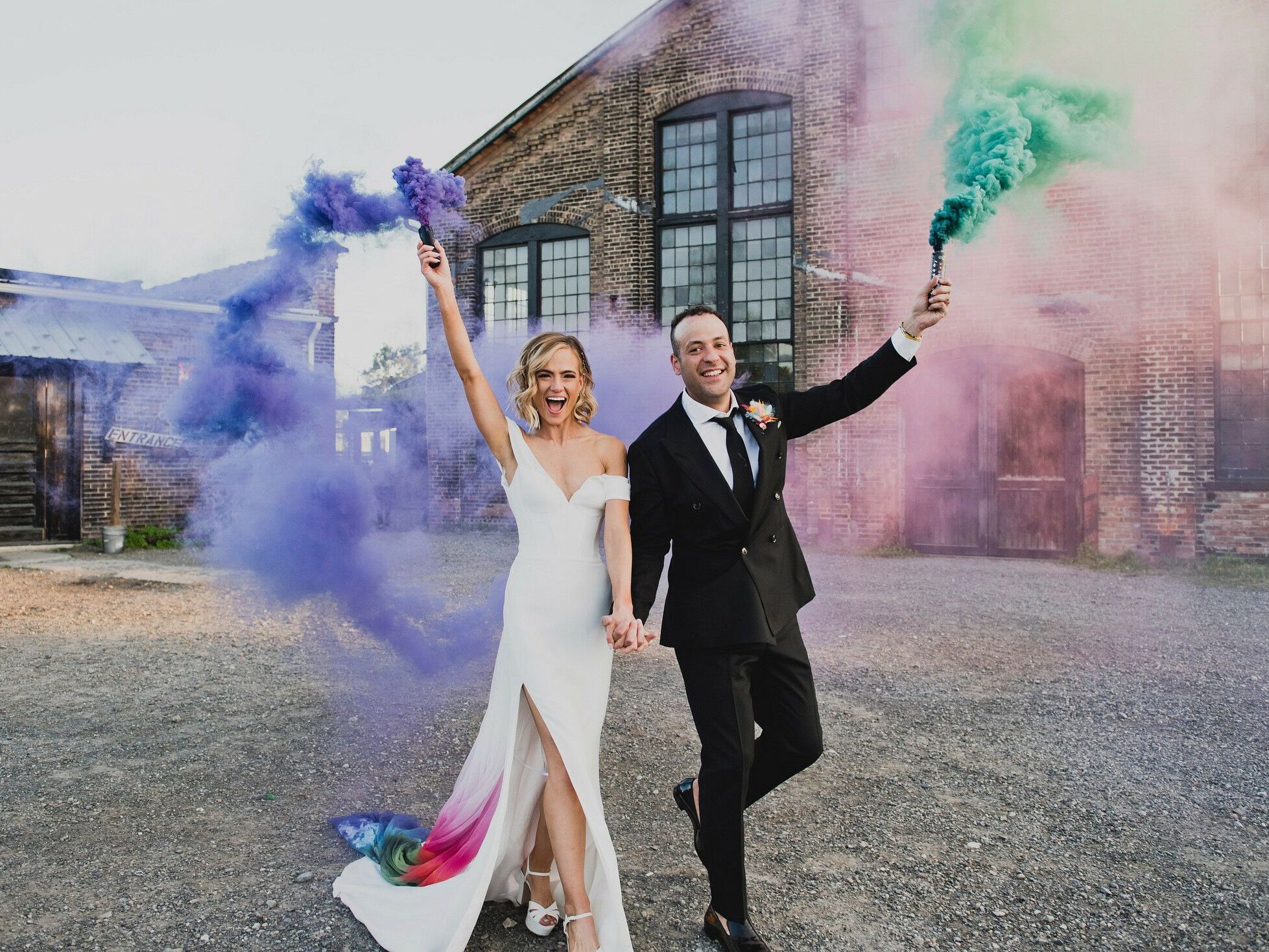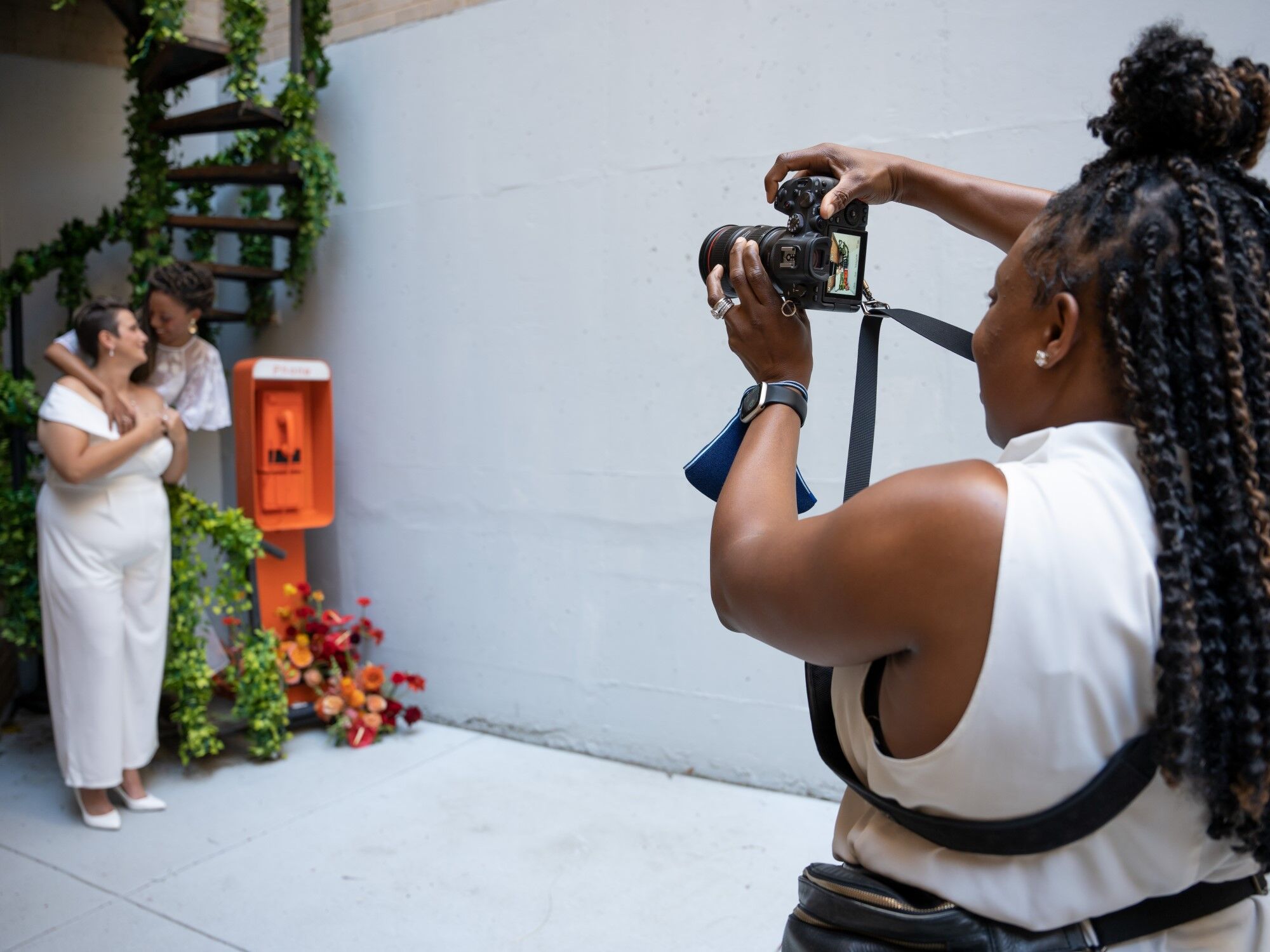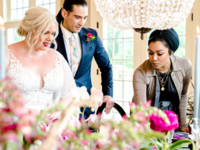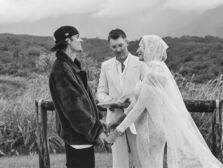How to Get Legally Married in West Virginia and Plan Your WV Wedding
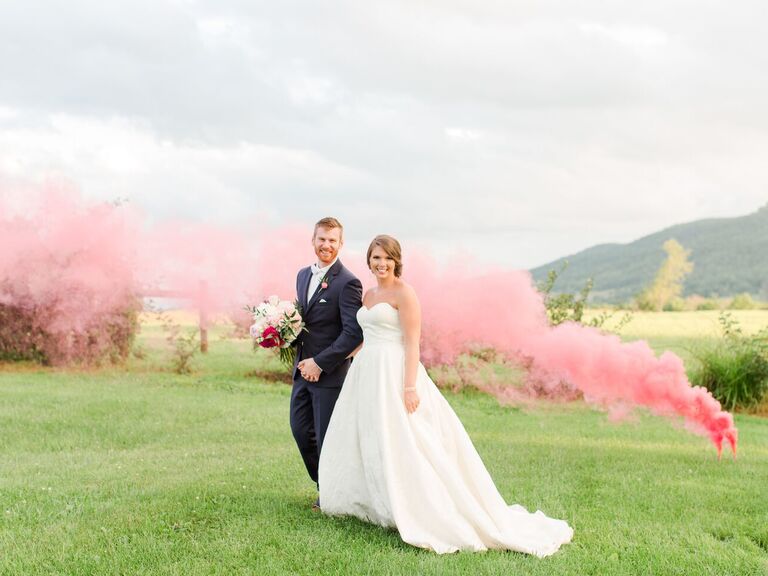
With its rugged landscape, rolling hills and beautiful valleys, West Virginia is, without a doubt, among the most scenic states in the country—making it the perfect place to say "I do." You'll be pleased to know that, aside from some paperwork, documentation and an in-person appointment, obtaining your West Virginia marriage license application and changing your surname is a fairly straightforward—and fuss-free—process.
Below, we've outlined everything you need to know about planning every aspect of your West Virginia wedding, from getting your marriage license to finding vendors and nearly everything in between. Let the planning begin!
How to Get Married in West Virginia
Wedding planning can be a daunting task, which is why we're here to help. Below, you'll find all the need-to-know information about getting married in West Virginia to help you stay on top of wedding planning and key logistics.
Is there a waiting period to get married in West Virginia?
There is no waiting period to get married in the state of West Virginia (unless you are under 18 years of age, in which case a three-day waiting period is required). Parental consent is necessary for West Virginia couples who are 16 or 17 years of age. Those under 18 will also need to provide certified copies of their birth certificates.
Keep in mind that your West Virginia marriage license will expire 60 days upon issuance—meaning your marriage ceremony must take place within that time frame.
What are the legal requirements to get married in West Virginia?
To obtain a marriage license in West Virginia, both you and your partner must be present in-person at the County Clerk's Office. You also need to present valid identification (such as a driver's license, for example).
Additionally, it is illegal to marry someone you are related to in West Virginia. However, the state does not require couples to take a blood test.
What's considered a common law marriage in West Virginia?
West Virginia does not recognize common law marriages. In other words, the only way to be considered legally wed in West Virginia is to obtain a marriage license.
West Virginia Marriage License 101
Obtaining your West Virginia marriage certificate can be overwhelming. Keep scrolling for answers to frequently asked questions about the marriage license process.
What do you need to get a marriage license in West Virginia?
West Virginia marriage licenses are issued by the County Clerk's Office.
You'll need to present a form of ID that shows proof of age. Be prepared to give your Social Security Number, too. You'll also need to provide your mother and father's full names (including your mother's maiden name)—along with where they were born. If you've had a previous marriage, you'll need to share the exact date that the marriage ended—plus how it ended (i.e., death, divorce or annulment).
What does a West Virginia marriage license cost?
A West Virginia marriage license will shell you back $57. The license fee can be paid by cash or check. However, you can save $20 by completing a premarital education course as long as the certificate of completion is dated within one year of your marriage license application.
How long does it take to get a marriage license in West Virginia?
West Virginia does not have a waiting period to be wed (unless you are under 18 years of age)—so, once you have the marriage license, you can exchange vows in any West Virginia county.
Can you apply for a marriage license online in West Virginia?
You must apply for your West Virginia marriage license in person. Both parties must be in attendance.
How do you get a copy of your West Virginia marriage license?
Couples can obtain a certified copy of their marriage certificate in person or by mail.
How to Plan a West Virginia Wedding
To make the wedding planning process less stressful, we've outlined all necessary information—plus helpful advice—for West Virginia couples to keep in mind.
The Different Cities And Areas to Consider for a West Virginia Wedding
In West Virginia, couples can exchange vows in any setting. The Mountain State boasts lush landscapes—from majestic mountains to winding rivers and more. Since West Virginia offers stunning surroundings, outdoor weddings are especially popular here. (Though indoor options are plentiful, too.)
In Charleston, the state's capital city (which, like many other West Virginia cities, feels more like a charming small town), you'll find dozens of venue options. Other popular wedding destinations include Fairmont, Morgantown and Snowshoe.
What to Look for in a West Virginia Wedding Venue
West Virginia wedding venues truly run the gamut, encompassing everything from rustic barns and expansive estates to elegant country clubs and sprawling resorts. While the wedding venue options can feel overwhelming, you'll have plenty to choose from. What's more, you're guaranteed to find a wedding venue to suit your style and budget.
How to Find West Virginia Vendors
West Virginia couples can choose from thousands of wedding vendors throughout the state —from caterers to bands and everything in between—all of whom will work with you and your soon-to-be spouse to make your special day all the more memorable. Plus, since there are so many vendors to choose from, it's easy to find one(s) within your budget.
To find the best vendors for you, you'll need to conduct some research, ask questions and read up on reviews. To start, browse The Knot Marketplace, which will help you narrow down the best wedding pros near you.
The Best Times of Year to Have a West Virginia Wedding for Good Weather
West Virginia is gorgeous in winter, spring, summer and fall. However, if you plan on hosting an outdoor wedding ceremony and reception, pick a wedding date in late spring, summer or autumn. In general, May and June and September and October are ideal since the weather isn't too hot or cold.
While the temps are colder in the fall, the foliage—which serves as a stunning backdrop for your wedding —is simply breathtaking. Winter is also beautiful, albeit snowy and chilly. As a rule of thumb, keep in mind that temperatures vary depending on your location and elevation.

